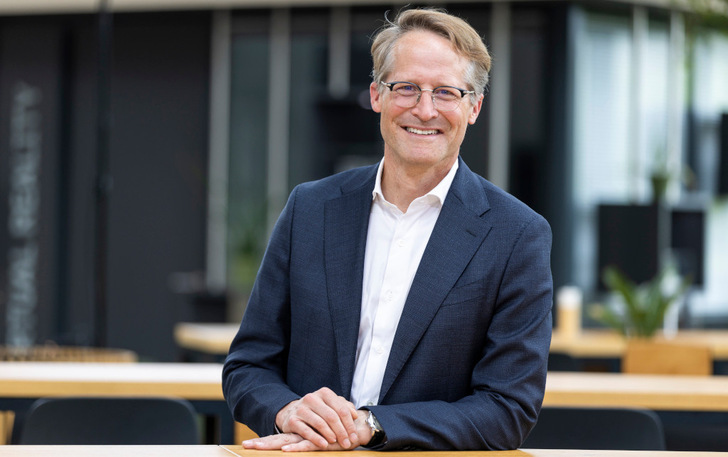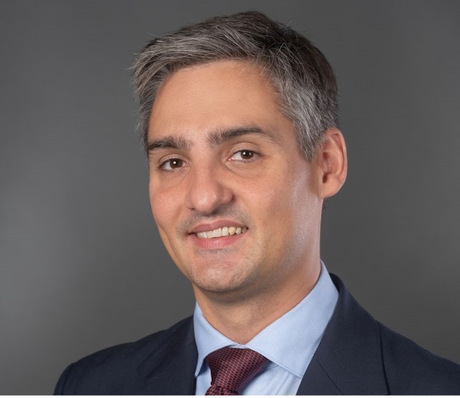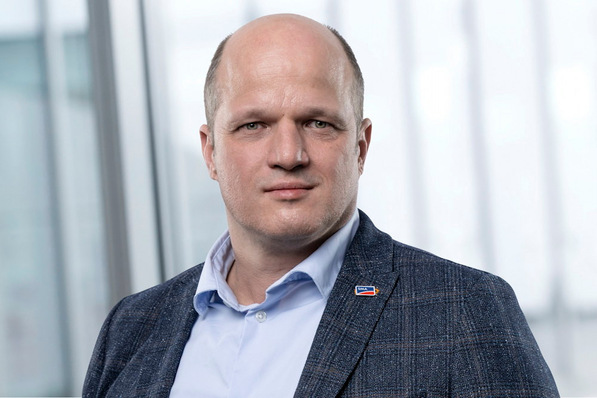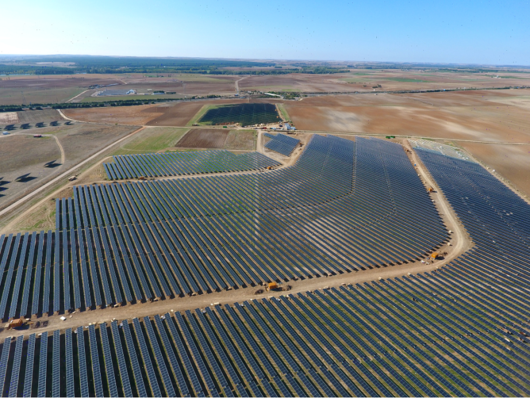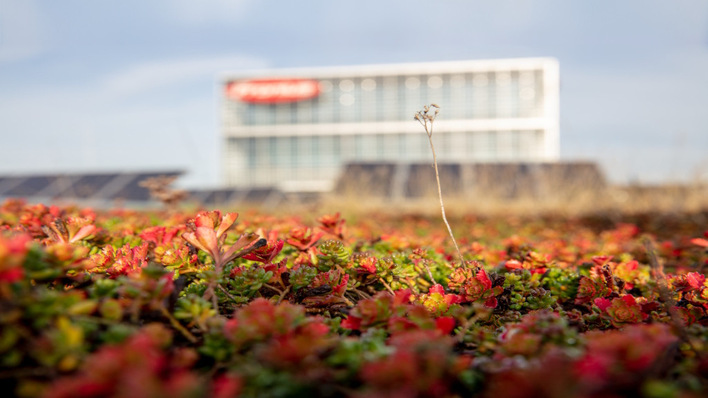How is the business of large solar roofs for commercial customers currently developing?
Joachim Goldbeck: Industrial roofs are doing well, although new construction in industry is currently slowing down. We are doing well with the installation of solar systems on the roofs of existing buildings, and projects are running continuously.
Sign up for our investor newsletter here!
Will the solar package bring more momentum to this market segment?
The tenders for solar roofs have been expanded, that is now clear. The supply of electricity to tenants and shared systems has also been simplified. In the case of solar roofs, our industrial and commercial customers often focus on their own consumption of solar power. The situation is different for project developers or investors who own large logistics halls. Here, feed-in is the priority. In both cases, an appropriate feed-in tariff is important to ensure economic profitability.
How are ground-mounted solar parks developing?
The demand is enormous. We have large and well-developed projects that we are implementing. However, grid connections are becoming scarce. Negative electricity prices are also a poor fit with the Power Purchase Agreement (PPA) business model. However, there is a strong pull in this market. Major players have built up larger project pipelines.
Some analysts see major challenges for the large ground-mounted parks due to the problems you mentioned ...
We will see whether the prophecies of doom come true or whether the bulls in the market are right. Because we need a lot more solar power, for example for electrical heat supply or e-mobility. Or the growing demand for electricity due to the increasing volumes of data resulting from artificial intelligence. Electricity is becoming increasingly important in industry, for example in the production of steel.
Move On Energy puts Witznitz energy park into operation
Could large storage batteries boost the expansion of solar parks?
As an EPC, we are currently building a stand-alone battery system for a customer as pure grid storage. This can currently be presented with exciting business models, even without a solar field. But battery storage systems will also play a growing role in solar projects. Hybrids of wind and solar can make better use of grid connection points, supported by large electricity storage systems. That will come, or is already underway.
How do you see the market developing in other countries? Which ones are particularly promising?
Goldbeck Solar has been very strong in the Netherlands for years. We have very large projects on the books there, especially on open land. I expect demand to change in a year or two. We assume that agri-PV will gain in importance. We will see what is grown underneath. We call this agrivoltaics. Because the interests of farmers are taken into account, it could be easier to obtain approval for this in the future than for solar parks on greenfield sites, for example.
Podcast Solar Investor's Guide #1: Thomas Schoy on problems with grid connection
Which other markets are exciting for you?
Poland is just getting going again. This market stuttered for some time and was delayed. Now we have very nice projects there. We also see very good prospects in Ukraine once the war is over. We have set up a joint venture with a partner to develop this market. However, there are still a number of unanswered questions, such as federal guarantees that also cover war damage.
There is a glaring lack of electricity in Ukraine, the infrastructure has been destroyed. Solar systems should actually be the first choice for reconstruction, shouldn't they?
We started the joint venture to develop this market. So far, there are no models like PPAs in Ukraine. Private electricity traders have only been licensed for two years. Although many investors are showing some interest, it's still a lot of talk. Martial law is currently in force and the electricity grid is very unstable. Electricity sales to local companies are not permitted in euros, only in the national currency, the hryvnia. We need the risks to be hedged by politicians before any real investment can be made.
Download free of charge (PDF): Witznitz Energy Park - New opportunity for old spoil tip
You have built many plants in the UK. What impact has Brexit had?
The UK was a strong market between 2011 and 2016. After a few weak years, we now have some good projects on our doorstep again, although many processes are definitely more complex. It is very difficult to find the right workers. In the past, many fitters from Poland or Ukraine worked in the UK, which was possible within the EU. Brexit has made this much more difficult. Taxes, customs and so on have also become more complicated.
We've seen similar ups and downs in Spain. Is recovery in sight there?
We are currently building eleven megawatts on Mallorca and 30 megawatts on the mainland. We are in talks about another 30 megawatt project. However, Spain is currently being stormed by project providers. This is causing the PPA price to fall. We have high quality standards, for example for cable technology. If only the lowest price counts in the market, the situation is not healthy. We need to identify customers who are prepared to value higher quality and longevity.
Interview by Heiko Schwarzburger

